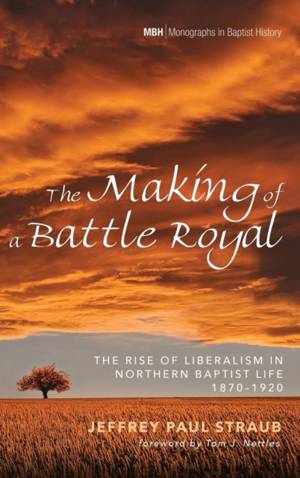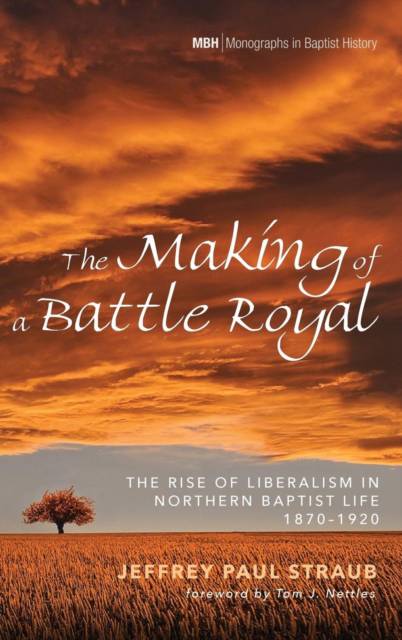
- Retrait gratuit dans votre magasin Club
- 7.000.000 titres dans notre catalogue
- Payer en toute sécurité
- Toujours un magasin près de chez vous
- Retrait gratuit dans votre magasin Club
- 7.000.0000 titres dans notre catalogue
- Payer en toute sécurité
- Toujours un magasin près de chez vous
The Making of a Battle Royal
The Rise of Liberalism in Northern Baptist Life, 1870-1920
Jeffrey Paul Straub
106,95 €
+ 213 points
Format
Description
American Baptists emerged from the Civil War as a divided group. Slavery, landmarkism, and other issues sundered Baptists into regional clusters who held more or less to the same larger doctrinal sentiments. As the century progressed, influences from Europe further altered the landscape. A new way to view the Bible--more human, less divine--began to shape Baptist thought. Moreover, Darwinian evolutionism altered the way religion was studied. Religion, like humanity itself, was progressing. Conservative Baptists--proto fundamentalists--objected to these alterations. Baptist bodies had a new enemy--theological liberalism. The schools were at the center of the story in the earliest days as professors, many of whom studied abroad, returned to the United States with progressive ideas that were passed on to their students. Soon these ideas were being presented at denominational gatherings or published in denomination papers and books. Baptists agitated over the new views, with some professors losing their jobs when they strayed too far from historic Baptists commitments. By 1920, the Northern Baptists, in particular, broke out into an all-out war over theology that came to be called "The Fundamentalist-Modernist" controversy. This is the fifty-year history behind that controversy.
Spécifications
Parties prenantes
- Auteur(s) :
- Editeur:
Contenu
- Nombre de pages :
- 414
- Langue:
- Anglais
- Collection :
- Tome:
- n° 8
Caractéristiques
- EAN:
- 9781498240567
- Date de parution :
- 17-04-18
- Format:
- Livre relié
- Format numérique:
- Genaaid
- Dimensions :
- 152 mm x 229 mm
- Poids :
- 721 g

Les avis
Nous publions uniquement les avis qui respectent les conditions requises. Consultez nos conditions pour les avis.






